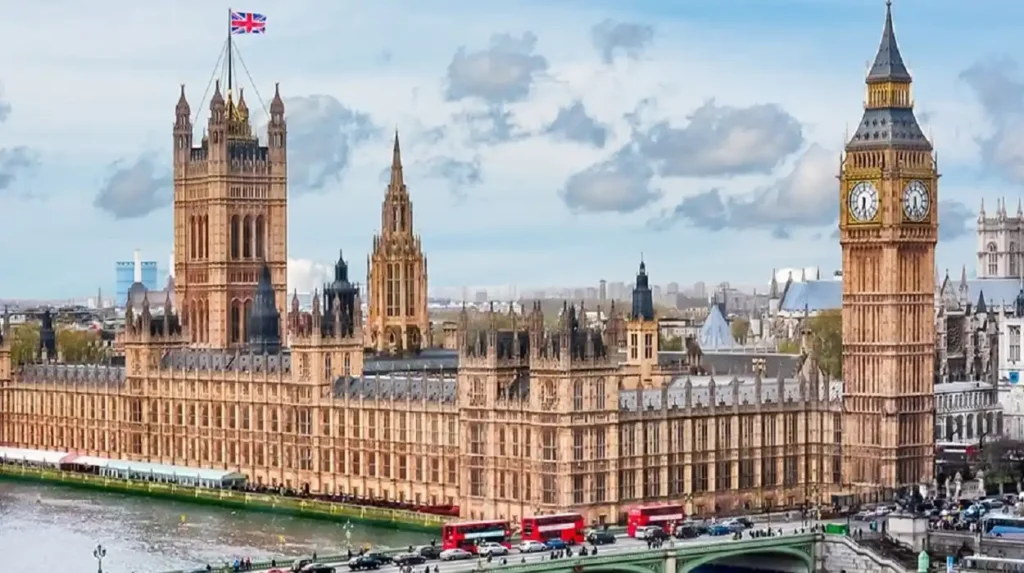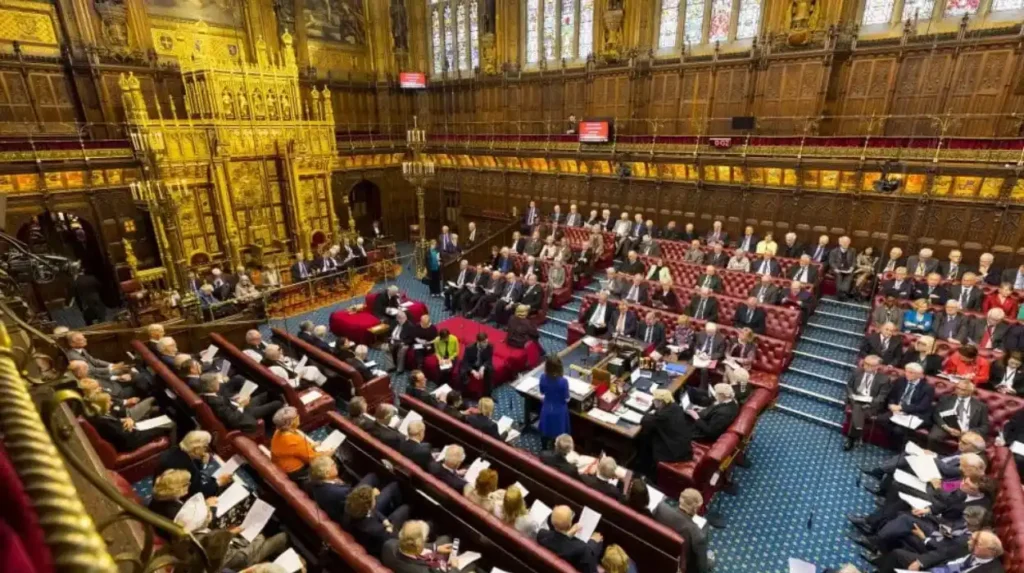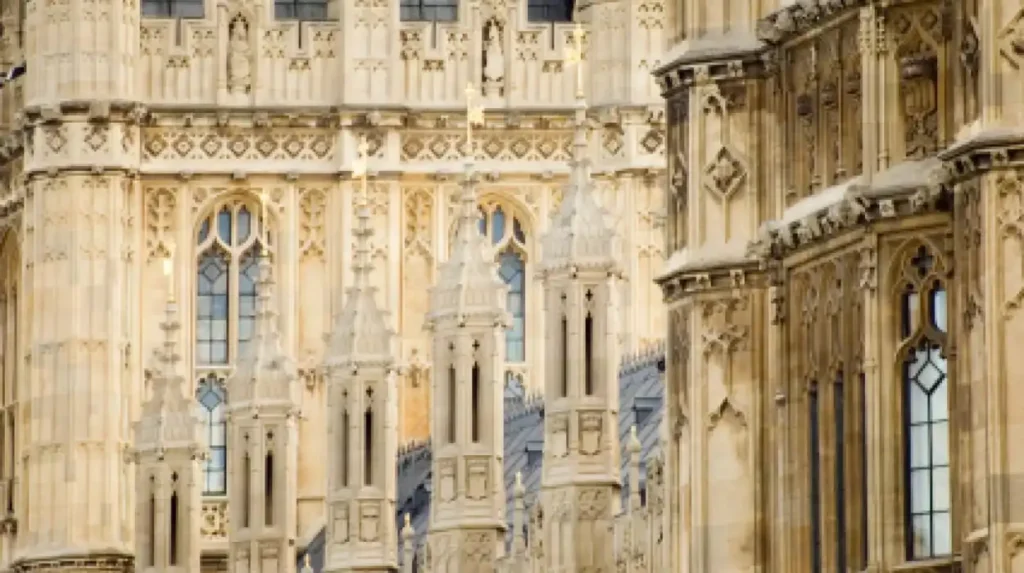One of the strongest tools in the UK political process is a vote of no confidence. It has the potential to bring down a government and set off a change of leadership or a public election. Many people are still unsure about who really has the power to call such a vote and what the legal and constitutional process entails, even if it is frequently alluded to in media debates about political instability.
What is a Vote of No Confidence?
A vote of no confidence is a formal motion in the House of Commons that states that Members of Parliament (MPs) no longer have confidence in the existing government. A vote of no confidence passed to clearly state that the government cannot be sustained because it has lost the confidence of the majority in Parliament. A vote of no confidence matters in all parliamentary democracies, as the government must hold the confidence of the Commons in order to be in power.

Who Can Call a Vote of No Confidence in the UK?
In the United Kingdom of Great Britain and Northern Ireland (UK), only Members of Parliament (MPs) in the House of Commons are able to submit a motion of no confidence. It is generally the leader of the opposition who calls for the motion, usually because they feel that the government has mismanaged policy, lost its legitimacy, or has been embroiled in some major scandal. All MPs are able to propose a motion of no confidence, although they will not normally get the parliamentary time for discussion unless they can get support from one or more other opposition parties.
The Speaker of the House of Commons will also determine the fate of a vote of no confidence motion. The Speaker will determine if the motion is deemed acceptable and what day or date it will be debated and voted on in the House of Commons. The Speaker will ensure the vote of no confidence will be voted on with seriousness.
Prime Minister’s Function in No Confidence Votes
Interestingly, the prime minister may also seek a confidence vote in their own government. Often done deliberately, especially when the Prime Minister aims to show authority or gather support for a contentious measure, this is the problem as one of confidence: the government pressures members of Parliament to support it or face bringing down the administration.
The Role of the Opposition Parties
No-confidence motions are initiated primarily by opposition parties. The Leader of the Opposition is the elected leader of the second largest party in Parliament and has a clear right to move a no-confidence motion. With political tensions high, opposition leaders often leverage no-confidence motions as a way of evaluating the degree of support for the government and the ability of the accounts to govern the country.
The Speaker’s Role in the Process
The Speaker of the House of Commons acts as the gatekeeper in this process. A motion of no confidence must receive agreement from the Speaker before it can be considered formally before Parliament. Upon agreement by the Speaker, it is the responsibility of the Speaker to assign parliamentary time to consider the no-confidence motion, allowing for MPs in the House of Commons to debate and vote on the motion. Without the Speaker’s agreement, the no-confidence motion cannot proceed.

Legal Considerations: Fixed-term Parliaments Act 2011
Until 2011, it was relatively easy for the prime minister to call a general election following a vote of no confidence. However, the Fixed-term Parliaments Act 2011 (FTPA) created strict rules:
- Where the government loses a vote of no confidence, the government has a 14-day period in which to show majority support in the Commons, either with the same government or a new coalition.
- If no government enjoys the confidence of the House within 14 days, a general election takes place automatically.
- This bill limited the Prime Minister’s discretion, shrank the power of government, and moved power to Parliament itself.
Repeal of the Fixed-term Parliaments Act
In 2022, the FTPA was repealed and replaced with the Dissolution and Calling of Parliament Act. So the law brought back the prime minister’s purview to call for the dissolution of Parliament from the monarch. However, MPs still have the power to call a no-confidence vote. If the vote is passed, the prime minister will have to resign or call a general election.
The Process Step by Step
- Motion Tabled—An MP, normally the Leader of the Opposition, tables a formal motion that states, “That this House has no confidence in His Majesty’s Government.”
- Speaker Approval—The Speaker of the House of Commons accepts the motion in order to debate.
- Parliamentary Debate—Parliament debates the motion, and government and opposition present their views on the matter.
- Commons Vote—MPs vote on the motion. A simple majority is required.
- Outcome – The government loses the vote and the Prime Minister must resign or seek a general election. If votes and the government wins, it remains in government, although it can still be subjected to political pressure when performing its executive functions.

Historical Instances of No Confidence Votes
- 1924 – Ramsay MacDonald’s Labour Government: The first Labour government lost a no-confidence vote and was forced into a general election.
- 1979 – James Callaghan’s Government: Lost by a single vote, and a general election was called, allowing Margaret Thatcher to take power.
- 1993—John Major’s Government: Survived no confidence motion regarding the Maastricht Treaty, but the vote weakened his leadership.
These examples show how important these votes are in UK political history.
Confidence and Supply Agreements
In the event that no one party attains a clear majority, a minority government sometimes enters into a confidence and supply arrangement with one or several smaller parties. In these agreements, the smaller party or parties agree to support the government on confidence motions and any supply (budget) votes. Should those agreements fail, the government can be in jeopardy because of a no-confidence vote.
What do confidence and no-confidence votes signify?
A Vote of Confidence: Usually called by the Prime Minister to show majority support.
A Vote of No Confidence: Proposed typically by opposition MPs to challenge the validity of the government again.
Both vote types, in fact, serve the same function of determining whether or not the Government still commands a majority in the Commons.
The Position of the Monarch
The monarch in the UK must remain apolitical. The monarch in the UK has a constitutional role, but they will not become involved in political wrangling. In the event a government loses a vote of no confidence, the monarch will consult with the government and follow their advice, appointing either a new prime minister who can command a majority in Parliament or dissolving Parliament and calling for a general election. This allows the monarch to remain neutral.
Consequences of a No Confidence Vote
The political ramifications of losing a vote of no confidence can be serious:
- Resignation of Prime Minister: A prime minister must resign if all appropriate alternatives are exhausted and no agreed-upon new government can be formed;
- General Election: A referendum of the electorate on a new Parliament may be called;
- Political Instability: A political party can still survive a significant vote of no confidence, but if a vote of no confidence is successfully passed against the government in spite of losing it, it can seriously weaken the deterioration of public trust in the government and policy.
Why are votes of No Confidence Rare?
Despite their significant implications, votes of no confidence are rather uncommon in UK parliamentary politics. As most governments enjoy party discipline, MPs are usually expected to vote in accordance with their party. Although rebels and backbenchers may act against the party, they might not obtain a significant position to remove the government unless they only have a very small majority!
Public Perception and Media Influence
No confidence votes are not only parliamentary instruments; they also have symbolic value around the public’s perception of confidence. Coverage and accompaniment of these types of events can even help shape the public’s ultimate perception of who to vote for next time. Governments that survive no confidence votes may seem to be weakened, even if they technically remain in power.
A Distinction Between the UK System and Other Democracies:
In many parliamentary democracies, Germany is one example, there is a “constructive vote of no confidence,” meaning that the new government has to be put forward in order to dismiss the old one. In the UK, the non-constructive vote of no confidence gives the ability to create a situation where the government can be dismissed with no new government being proposed, which raises the possibility of sudden elections, and any fleeting position in government can be stamped on in political culture.

